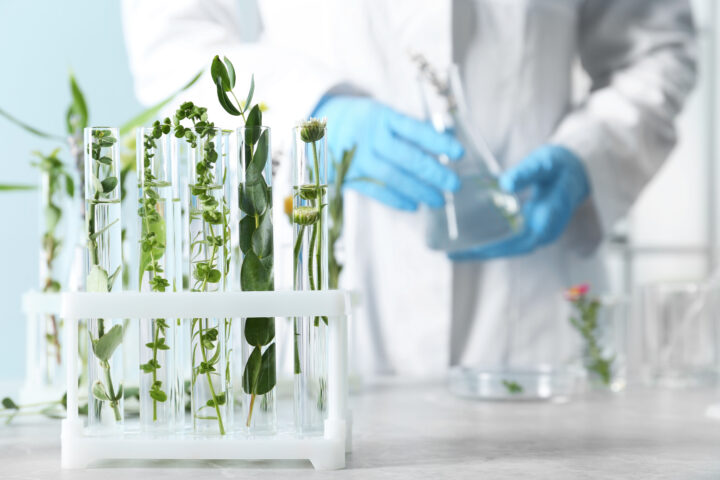
Arguments for new breeding technologies
Plant breeding is complex. Accordingly, there are many questions in the discussion surrounding new breeding methods. swiss-food.ch has compiled the most important questions and answers on new breeding technologies.
Sunday, March 20, 2022
The scientific consensus on the safety of modern breeding methods is strong. The modern breeding methods are much more accurate than many of the classical approaches that have been used in Switzerland for a long time and also interfere with the genome of the plant. For leading researchers in the field, it is clear: It is simply wrong to claim that there is no data base.
Research has been conducted on genetic engineering for decades. The potential risks, including those relating to new procedures, have been investigated over and over again. Genetically modified plants pose no greater risk than conventional plants. This was also confirmed in 2012 by the National Fund Project 59 (NFP 59). The scientific consensus is comparable to that on human-induced global warming. A survey of around 2000 American scientists from the fields of biology and biochemistry showed in 2014 that 91 percent of the respondents considered the consumption of genetically modified foods to be completely harmless.
This also applies to the new more precise breeding methods. Applications of genome editing are more accurate and have been shown to cause fewer so-called "off-target effects" (mutations at unwanted places) than methods already approved today, such as classical mutagenesis. The Swiss Academy of natural Sciences (SCNAT) points out on several occasions that the scientific basis can be considered sufficient to adapt the legal provisions to the current state of knowledge and that breeding techniques will no longer play a role in regulation, but only the product, i.e. the plant with its new properties.
This is also confirmed by Prof. Wilhelm Gruissem from ETH Zurich, who was already a major participant in the NFP 59. In an interview, he points out that there are numerous studies that show that the new breeding methods, just like conventional breeding methods, can also be used at a manageable risk. In view of this, the claim that there are no reliable data and only a small amount of information on the new genomic procedures, as also made in the context of the debate in the National Council, has been made out of thin air.
These and other arguments can be found in our detailed Q&A on the new breeding technologies, available for download below.
Sources
Related articles

Green biotech: safety concerns no longer hold water
At the end of October, swiss-food.ch hosted a film screening and panel discussion in Zurich on the subject of genome editing entitled “Between Protest and Potential”. The well-attended event dealt with the emotional debates in recent decades surrounding genetic engineering. The event showed that the situation has changed fundamentally.

With false narratives against genetic engineering
To denigrate green genetic engineering, narratives that do not stand up to scrutiny keep popping up in the public debate. The aim in each case is political. Recently, the false claims are intended to prevent the regulation of new breeding methods such as Crispr Cas from being technology-friendly.

Popular Apple Varieties in Danger
The science magazine "Einstein" of Swiss Television has addressed the new breeding methods. The report clearly shows that there is no way around these new methods if Switzerland wants to continue cultivating popular apple varieties such as Gala, Braeburn, and Golden Delicious.

Genome editing: Organic farming shuts itself off from progress
In future, the EU wants to treat genome-edited plants in the same way as conventionally bred ones. As the "NZZ am Sonntag" writes, this is like a small revolution. Until now, the commercial use of gene scissors has been impossible due to an extremely restrictive genetic engineering law.

